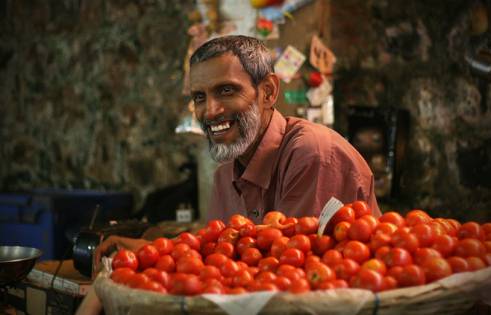By Attila Kulcsar and Sarah Marzouk
Today, the United Nations’ International Day of Older Persons, HelpAge International is launching the Global AgeWatch Index 2013 – the first-ever to measure the quality of life and wellbeing of older people around the world.
Developed with the support of the United Nations Fund for Population and Development (UNFPA), the Index covers 89% of the world’s older people in 91 countries and highlights those countries which are not yet serving the needs of older people.
Urgent action needed to tackle poverty in old age
With nearly 900 million people over 60, urgent action is needed to fight poverty in old age and tackle age discrimination and the abuse of older people’s rights.
Indeed, as part of our Age Demands Action (ADA) campaign, older activists from 58 countries around the world will call on their decision makers to take action on important issues such as healthcare and pensions.
From Albania to Zambia, older people will be marching in the street, talking to ministers, putting on photo exhibitions and hosting workshops to raise awareness of the problems they face in old age.
Internationally, ADA is calling for a new UN convention on the rights of older people. A convention is the only legally binding instrument that will adequately protect the rights of older people.
Rapidly ageing world
Silvia Stefanoni, HelpAge’s Chief Executive said:
“The world is rapidly ageing: people over 60 already exceed children under 5, and by 2050 they will outnumber children under 15. However, the continual exclusion of ageing from national and global agendas is one of the biggest obstacles to meeting the needs of the world’s ageing population.
“By giving us a better understanding of the quality of life of women and men as they age, this new Index can help us focus our attention on where things are going well and where we have to make improvements.”
Data revolution
As a response to the UN Secretary-General’s call for a data revolution to better monitor the needs of vulnerable groups previously excluded from data gathering, the Index focuses on older people’s economic security, health, personal capabilities and their enabling environment. It shows the need for better policies and services to improve their lives – especially in developing countries.
There is also a close correlation between where the data highlights the need for countries to improve in certain areas and the specific aims of our national Age Demands Action campaigns.
The Index shows that:
- The fastest ageing countries – Jordan, Lao, Mongolia, Nicaragua and Vietnam, where the number of older people will more than triple by 2050 – all fall into the lower half of the ranking, suggesting that policy makers need to tackle ageing head on if they are to support their ageing populations.
- Sweden is the best place for older people – this year it celebrates a century of its state pension.
- The worst place for an older person is Afghanistan. Just above it come Pakistan, Tanzania and Jordan, where a comparison with the Human Development Index shows that the wellbeing of older people is noticeably worse than that of the general population.
- Poorer countries with a history of progressive social policies such as Sri Lanka, Bolivia and Mauritius score higher than might be expected from the size of their economies.
Enriching the debate on sustainable development
Professor Sir Richard Jolly, creator of the Human Development Index, said:
“This ground-breaking Index broadens the way we understand the needs and opportunities of older people through its pioneering application of human development methodology. It challenges countries in every part of the world to raise their sights as to what is possible.
“The Index will enrich the debate on sustainable development by looking beyond the relationship between investment in ageing and economic growth to how we can support people’s capabilities and choices as they age – for the benefit of all ages.”
Data gaps
The construction of the Index has highlighted a serious lack of such data in key areas of the world including Africa, the Middle East and the Caribbean.
Over the coming years, we will be pushing for better data sets so that we can include more countries and a greater range of indicators to give a richer and deeper global picture.
Download the Global AgeWatch Index
Visit our new Global AgeWatch Index website to download the insight report, summary and methodology.
